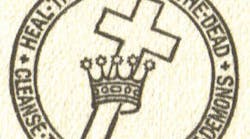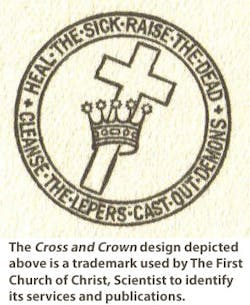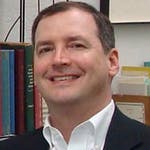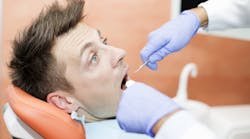--Opinion--
Dentists work with their Christian Science patients to respect their faith while providing treatment
In 2014, a dental hygienist in California diagnosed a patient with a serious gum abscess and recommended immediate oral surgery or antibiotics, or both. When the patient returned the next day for her appointment, the dentist examining her discovered the condition was no longer present. In the interim, this patient, Beverly Farr, also had requested treatment through prayer from a Christian Science practitioner. In seeking healing as a Christian Scientist, she wrote, “I knew that I needed to keep thought focused on the spiritual.” (2)
Many people have heard of Christian Science as a religious denomination. More may be familiar with the international newspaper long published by the church, The Christian Science Monitor, now online. But over the denomination’s 137-year history, Christian Scientists perhaps have been most widely known—if also often misunderstood—for their commitment to spiritual healing through prayer.
For Christian Scientists, this isn’t a matter of “faith healing” in the stereotypical sense, accepting God’s will, good or bad. Rather, it’s a conscientious way of life involving spiritual study, prayer, Golden Rule ethics, and growth in grace. Prayer in Christian Science isn’t a matter of asking God for personal favors, but is approached as heartfelt inner communion with God. It is a ministry patterned after Jesus’s works, a window on what God is and does for mankind. As Ms. Farr’s published testimony explains, healing comes from “engaging in an authentic and inspiring way with the Divine.”
Since the denomination’s early years in the late 19th century, Christian Scientists and dentists have enjoyed cordial and regular contact with each other. On the one hand, Christian Scientists have had great appreciation for dentists and the practical help they provide—as well as the spirit of care and professionalism in which they provide it. Many visit dentists for cleanings and check-ups, as most people do; and as the instances mentioned above touch upon, through the practice of Christian Science they’ve experienced freedom from pain and healings of discordant conditions, both major and minor, including trench mouth, pyorrhea, and nerve damage to a tooth, for which a root canal had been recommended. (3–5)
On the other hand, dentists have shown much respect for their patients who are Christian Scientists. Throughout the denomination’s history a number of dentists themselves have become Christian Scientists. In the 1880s, for example, two advertised in The Christian Science Journal, the church’s monthly magazine. At least one of them, Dr. E.N. Harris, studied Christian Science with the church’s founder, Mary Baker Eddy. Dentists of that era related how they were healed through Christian Science of conditions such as consumption, eczema, quinsy, and addiction. (6–9) On occasion, dentists have also provided written confirmations of healings they’ve witnessed for accounts submitted by their patients to the church’s publications. While these accounts are intended as religious testimonies, not medical case histories, the integrity of the experiences related is no less paramount.
Visit with Christian Scientists today, and many will testify to the great value spirituality and prayer have brought to their health and well-being and also to their aiding the lives of others. I’ve heard from church members who have recounted how Christian Science has not only helped them to make wise lifestyle choices, but also has provided important restorative care when needed. While the extent of dental services a Christian Scientist receives is a personal choice (the church doesn’t dictate an individual’s health care decisions), most members I know have found that their regular spiritual practice has resulted in the relatively moderate use of these services, which, in my view, is something dentists and patients alike would appreciate.
From my own experience with visiting the same dentist over my adult years, I can say he’s been most considerate of my preferences as a Christian Scientist. I’m grateful to have received to date generally the most basic services, while instances of dental surgery have been minimal— results I attribute to the regular study and practice of Christian Science in my own life.
It might be best to conclude with a published account by a former colleague of mine, Russell Whittaker, in North Carolina. During a regular check-up, the dentist informed him of a cavity that needed to be filled. After scheduling the appointment, Mr. Whittaker turned to prayer for healing, as he is accustomed to doing as a Christian Scientist, while also receiving support from a Christian Science practitioner. “When I returned to the dentist to keep the appointment for the filling,” Mr. Whittaker later recalled, “he announced that the tooth he had diagnosed with a cavity no longer had a cavity. That was over 20 years ago, and I have not had to visit the dentist for anything other than regular cleaning since.” (10)
The interactions between Christian Scientists and dentists have an interesting and unique history. As these accounts indicate, it’s largely a history that includes mutual respect and effective healing through prayer.
References
(1) Smith RA. Testimony. Christ Sci J. 1902; 20(2): 115.
(2) Farr B. Testimony. Christ Sci J. 2014; 132(9): 38-39.
(3) Hughes RM. Testimony. Christ Sci J. 2016; 134(2): 29-30
(4) Collins BD. Testimony. Christ Sci Sentinel. 1980; 82(45): 1926-1927
(5) Freas D. Testimony. Christ Sci Sentinel. 2002; 104(4): 24-25.
(6) Tiffin J. Testimony. Christ Sci Sentinel. 1905; 7(32): 511.
(7) Robinson JE. Testimony. Christ Sci Sentinel. 1906; 8(48): 767.
(8) Bower DV. Testimony. Christ Sci Sentinel. 1915; 17(50): 996.
(9) Shultz CA. Testimony. Christ Sci Sentinel. 1908; 10(20): 394.
(10) Whittaker R. Testimony. Christ Sci Sentinel. 2011; 113(50): 25.
Op-ed disclamier: The views and opinions expressed in this article are solely those of the author. These views and opinions do not necessarily represent those of DentistryIQ, its staff, or contributers to this site.








